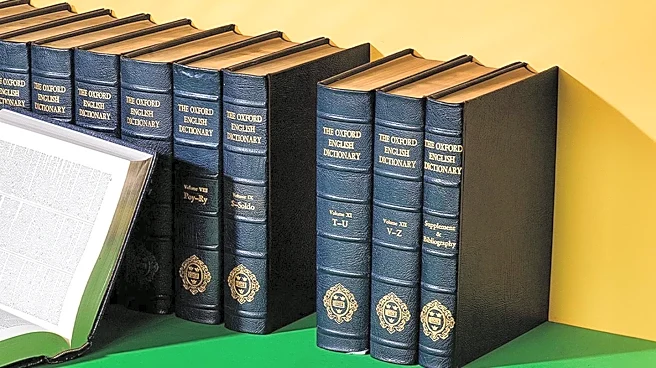What's Happening?
Dictionary editors are facing challenges in defining racist slurs, naughty words, and new forms of profanity. Stefan Fatsis, author of 'Unabridged: The Thrill of (and Threat to) the Modern Dictionary,' discusses the complexities involved in categorizing
divisive language. Editors must navigate heated debates over terms like the N-word, ableist slurs, and gender-related language. These discussions reflect broader societal issues and the evolving nature of language. The role of dictionary editors is crucial in shaping public understanding and usage of controversial words.
Why It's Important?
The way dictionaries define slurs and profanity has significant implications for societal norms and cultural discourse. Accurate and sensitive definitions can influence public perception and usage, potentially reducing harm caused by offensive language. As language evolves, dictionary editors play a vital role in reflecting changes and addressing contentious issues. Their work impacts education, media, and public policy, highlighting the importance of responsible language management. The ongoing debates underscore the need for dictionaries to adapt to cultural shifts and promote inclusivity.
Beyond the Headlines
The ethical considerations in defining slurs and profanity extend beyond linguistic accuracy. Editors must balance historical context, cultural sensitivity, and the potential impact on marginalized communities. The process involves collaboration with experts and stakeholders to ensure definitions are comprehensive and respectful. This work contributes to broader efforts to combat discrimination and promote social justice. The evolving nature of language requires continuous adaptation, challenging editors to remain vigilant and responsive to societal changes.















